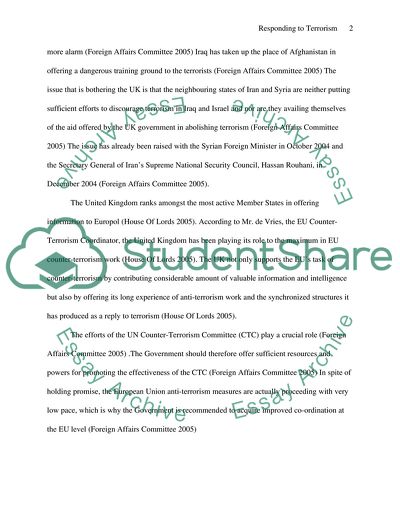Cite this document
(“Terrorism 9/11 the UK and other democracies Essay”, n.d.)
Retrieved from https://studentshare.org/military/1540978-terrorism-9-11-the-uk-and-other-democracies
Retrieved from https://studentshare.org/military/1540978-terrorism-9-11-the-uk-and-other-democracies
(Terrorism 9/11 the UK and Other Democracies Essay)
https://studentshare.org/military/1540978-terrorism-9-11-the-uk-and-other-democracies.
https://studentshare.org/military/1540978-terrorism-9-11-the-uk-and-other-democracies.
“Terrorism 9/11 the UK and Other Democracies Essay”, n.d. https://studentshare.org/military/1540978-terrorism-9-11-the-uk-and-other-democracies.


